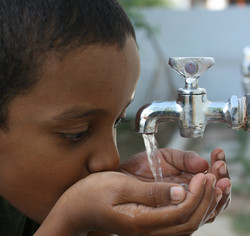Novel urban design approaches to enhance wastewater recycling and reuse in Asia
Small regions and towns in Asia are being transformed due to rapid economic growth mainly brought on by tourism. Such rushed development further aggravates environmental concerns caused by the lack of adequate drinking water and wastewater management. The EU-funded URBEN (Linking urban design and health issues: An interdisciplinary approach) project set out to address this issue by mapping the links between water quality, health issues and urban development in three rapidly expanding towns in Asia. The towns are Darchen in Tibet, Shaxi in China and Leh in India. Overall, the aim was to identify potential solutions and develop a generally applicable eco-town model. In each of the three towns, researchers conducted surveys of citizens and visitors. They collected local health data and mapped the local water and sanitation infrastructure. An analysis of the data from the town of Leh revealed that recent increased use of groundwater sources due to a population explosion and increased tourism is linked to a rising number of diarrhoea cases. Furthermore, this groundwater extraction is unsustainable and energy intensive for the local authorities that supply freshwater. They use a centralised sewage system that requires twice as much groundwater extraction per person and poses a potential health hazard to the local population. Wastewater may not be properly treated, thus allowing it to seep into groundwater sources. Project partners developed solutions for Leh in partnership with a local non-governmental organisation and with the aid of modelling software. Policy recommendations promoted an integrated urban planning approach and decentralised sewage systems to reduce health risks and conserve water resources and energy. Thanks to URBEN, the Leh case study and overall outcomes can now serve as a model for other towns with similar problems to promote sustainable and healthy water systems.







